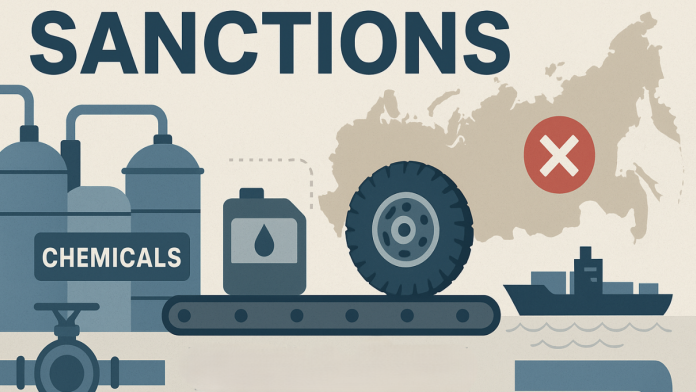Western countries have already placed many sanctions on Russia since the start of its full-scale invasion of Ukraine. These sanctions have focused on big targets such as major energy companies, large banks, military suppliers, and even the “shadow fleet” of ships that move Russian oil. Recently, the US also placed sanctions on the oil giants Rosneft and Lukoil to try to weaken Russia’s ability to fund its war. At a meeting of G7 countries, Marco Rubio said that most major options had already been used, and that the West had nearly run out of new areas to sanction.
But a US civil society group called Dekleptocracy says an entire set of important weaknesses is still being overlooked. Led by Kristofer Harrison, the group studies Russia’s war economy and searches through huge amounts of trade data. Their goal is to find hidden pressure points—items that seem small but are vital for Russia’s military. Harrison says these targets are “weedy and specific,” meaning they are easy to miss but very hard for Russia to replace.
Experts say this type of research matters. Tom Keatinge, from the Royal United Services Institute, explained that as long as Russia can buy the parts it needs and continue selling its oil, the list of possible sanctions remains long.
Chemicals Russia Needs but Cannot Make Easily
Dekleptocracy discovered that Russia depends heavily on foreign chemicals used to make mechanical lubricants. These lubricants are needed for engines in tanks, trucks, and regular cars. Only a small number of companies worldwide make the chemical additives that help these lubricants work. When Russia began its invasion, almost all these companies stopped selling to Russia. This led to shortages, and even regular drivers complained about the lack of proper motor oil.
The group found that one Chinese company, Xinxiang Richful, now fills much of this gap and may supply up to 8 million kilograms of additives each month. The company has even opened an office in Virginia. Dekleptocracy believes that blocking this company, along with a few smaller suppliers, could create a serious shortage in Russia. The group’s report says a “lubricant shortage would seriously damage Russia’s war machine,” because military vehicles cannot run without proper engine oil.
The research also found that Russia struggles to produce the chemicals needed for military-grade tyres, including vulcanisation accelerants. These chemicals make tyres strong enough for heavy military use. Russia has very limited domestic production, so it must import most of them. Without these supplies, Russia could face serious problems replacing tyres for its vehicles.
Russia’s chemical weaknesses go beyond lubricants and tyres. It also depends on imports for chemicals used in food, shampoo, pharmaceuticals, and other everyday products. Earlier this year, Moscow launched a plan to produce hundreds of chemicals within Russia. Dekleptocracy says this is further proof that the sector is a major vulnerability.
Sanctions Miss Key Gaps Without Strong Enforcement
Experts say it is too early to know whether the latest sanctions against Rosneft and Lukoil will work. According to Keatinge, the main challenge is that many buyers still purchase Russian oil through indirect routes. He argues that identifying new targets is not enough—sanctions must also be enforced properly.
Civil society groups play an important role in this effort. Along with Dekleptocracy, groups such as Razom We Stand, B4Ukraine, and the Center for Advanced Defense Studies help governments find weak spots that might otherwise go unnoticed. Cara Abercrombie, who previously worked in the US Department of Defense, said these groups have already shown how identifying specific, vulnerable parts of Russian projects can create disruption.
Their latest findings show that even small chemicals, hidden deep inside supply chains, can become significant pressure points.


